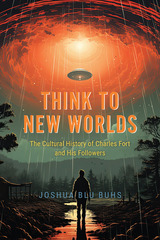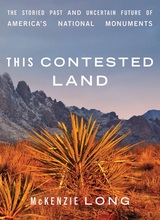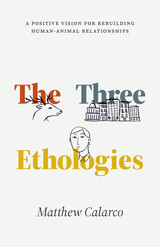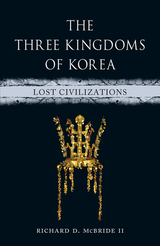121 books about Voices and 3
start with P
121 books about Voices and 3
121 books about Voices
3 start with P start with P
3 start with P start with P
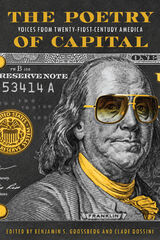
The Poetry of Capital
Voices from Twenty-First-Century America
Edited by Benjamin S. Grossberg and Clare Rossini
University of Wisconsin Press, 2021
What do we talk about when we talk about money? As the forty-four poets in this brilliant new anthology show, the answer is everything. From the impact of global economic crises to local tag sales, from the subversive effects of dark money on politics to the freedom granted by a summer job, from sweatshops where our clothes are produced to the malls where they are sold, this volume gets to the heart of Americans’ relationships to capital as only poetry can.
Editors Benjamin S. Grossberg and Clare Rossini selected poems to reflect broad themes of labor, history and economic forces, social equity, and the environment. In addition, they asked each poet to provide a brief prose comment to introduce their work. Some give broad statements on the nature of wealth in America today; others are intimate, offering insight into how life experiences inform their writing; still others reflect on the art of poetry itself and its unique power to speak to economic pressures of the moment.
Contributors include Mary Jo Bang, Xochiquetzal Candelaria, Alan Chazaro, Mark Doty, Denise Duhamel, Tony Hoagland, Yusef Komunyakaa, Dorianne Laux, Kimiko Hahn, Sharon Olds, George Perreault, Robert Pinsky, Minnie Bruce Pratt, Afaa Michael Weaver, David Wojahn, and others.
Editors Benjamin S. Grossberg and Clare Rossini selected poems to reflect broad themes of labor, history and economic forces, social equity, and the environment. In addition, they asked each poet to provide a brief prose comment to introduce their work. Some give broad statements on the nature of wealth in America today; others are intimate, offering insight into how life experiences inform their writing; still others reflect on the art of poetry itself and its unique power to speak to economic pressures of the moment.
Contributors include Mary Jo Bang, Xochiquetzal Candelaria, Alan Chazaro, Mark Doty, Denise Duhamel, Tony Hoagland, Yusef Komunyakaa, Dorianne Laux, Kimiko Hahn, Sharon Olds, George Perreault, Robert Pinsky, Minnie Bruce Pratt, Afaa Michael Weaver, David Wojahn, and others.
[more]
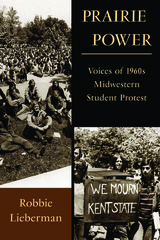
Prairie Power
Voices of 1960s Midwestern Student Protest
Robbie Lieberman
University of Missouri Press, 2019
Prairie Power, a superb collection of oral histories from the 1960s, focuses on former student radicals at the University of Missouri, the University of Kansas, and Southern Illinois University. Robbie Lieberman presents a view of Midwestern New Left activists that has been neglected in previous studies.
Scholarship on the sixties has been shifting from a national focus to more local and regional studies, but few authors have studied the student movement in the Midwest. Moreover, the characterization of prairie power activists as “long-haired, dope-smoking anarchists” who were responsible for the downfall of Students for a Democratic Society (SDS) has not been challenged directly. While still viewing these activists critically, Lieberman argues that Midwestern students made significant contributions to the New Left in the latter half of the decade, and that their efforts were not only important at the time but also had a lasting impact on the universities and towns in which they were active.
The author begins by explaining “prairie power” and establishing its significance in the history of 1960s protest. She then presents the oral histories in three parts. The first section reveals what “prairie power” meant to national leaders of SDS who were regional organizers in the Midwest. The second section of oral histories gives insight into the backgrounds, concerns, and activities of local leaders from the three universities who were homegrown Midwestern activists. Lieberman shows that while the national leaders take credit for organizing on several college campuses, the local activists often felt that they were on their own.
The third group of oral histories—from grassroots activists—is what most sets this book apart from previous works on the student New Left. These are students who joined demonstrations on their own campuses but did not necessarily identify with either local or national organizations. Their rarely heard voices help provide a better understanding of who participated in the student protest movement, why they were involved, and how their activities profoundly affected their lives for years to come.
Prairie Power makes a significant contribution toward a more comprehensive history of student activism in the turbulent 1960s.
[more]

The Puerto Rican Movement
Voices from the Diaspora
Andres Torres
Temple University Press, 1998
Little attention has been paid to the Latino movements of the 1960s and 1970s in the literature of social movements. This volume is the first significant look at the organizations of the Puerto Rican movement, which emerged in the late 1960s and 1970s as a response to U.S. colonialism on the island and to the poverty and discrimination faced by most Puerto Ricans on the mainland.
To combat these two problems, and drawing n a tradition of patriotism and social responsibility, a number of organizations grew up, including the Young Lords Party (YLP), which later evolved into the Puerto Rican Revolutionary Workers Organization; the Pro Independence Movement (MPI), which evolved into the U.S> branch of the Puerto Rican Socialist Party; El Comite; the Puerto Rican Student Union (PRSU); the Movement for National Liberation (MLN); and the Armed Forces of National Liberation (FALN). THe Puerto Rican Movement looks at all these groups as specific organizations of real people in such places as Boston, Chicago, Hartford, New York, and Philadelphia.
The contributors, almost all of whom were involved with the organizations they describe, provide detailed descriptions and historical analyses of the Puerto Rican Left. Interviews with such key figures as Elizam Escobar, Piri Thomas, and Luis Fuentes, as well as accounts by people active in the gay/lesbian, African American, and white Left movements add a vivid picture of why and how people became radicalized and how their ideals intersected with their group's own dynamics.
These critical assessments highlight each organization's accomplishments and failures and illuminate how different sets of people, in different circumstances, respond to social problems -- in this case, the "national question" and the issues of social justice and movement politics.
To combat these two problems, and drawing n a tradition of patriotism and social responsibility, a number of organizations grew up, including the Young Lords Party (YLP), which later evolved into the Puerto Rican Revolutionary Workers Organization; the Pro Independence Movement (MPI), which evolved into the U.S> branch of the Puerto Rican Socialist Party; El Comite; the Puerto Rican Student Union (PRSU); the Movement for National Liberation (MLN); and the Armed Forces of National Liberation (FALN). THe Puerto Rican Movement looks at all these groups as specific organizations of real people in such places as Boston, Chicago, Hartford, New York, and Philadelphia.
The contributors, almost all of whom were involved with the organizations they describe, provide detailed descriptions and historical analyses of the Puerto Rican Left. Interviews with such key figures as Elizam Escobar, Piri Thomas, and Luis Fuentes, as well as accounts by people active in the gay/lesbian, African American, and white Left movements add a vivid picture of why and how people became radicalized and how their ideals intersected with their group's own dynamics.
These critical assessments highlight each organization's accomplishments and failures and illuminate how different sets of people, in different circumstances, respond to social problems -- in this case, the "national question" and the issues of social justice and movement politics.
[more]
READERS
Browse our collection.
PUBLISHERS
See BiblioVault's publisher services.
STUDENT SERVICES
Files for college accessibility offices.
UChicago Accessibility Resources
home | accessibility | search | about | contact us
BiblioVault ® 2001 - 2024
The University of Chicago Press


